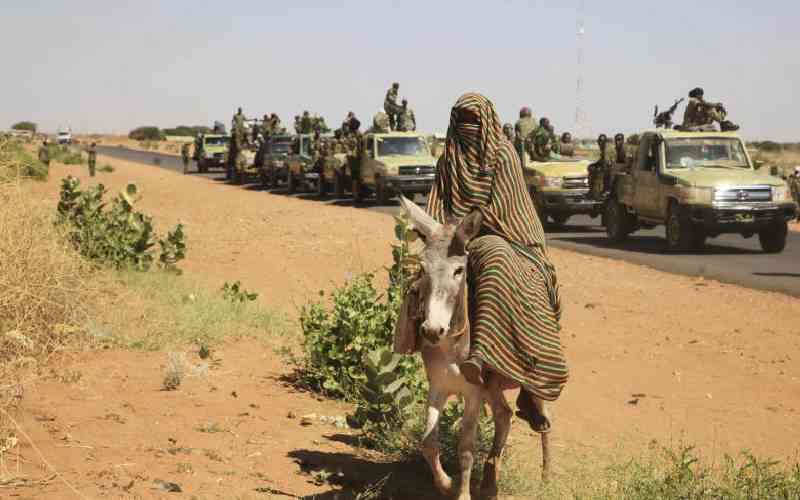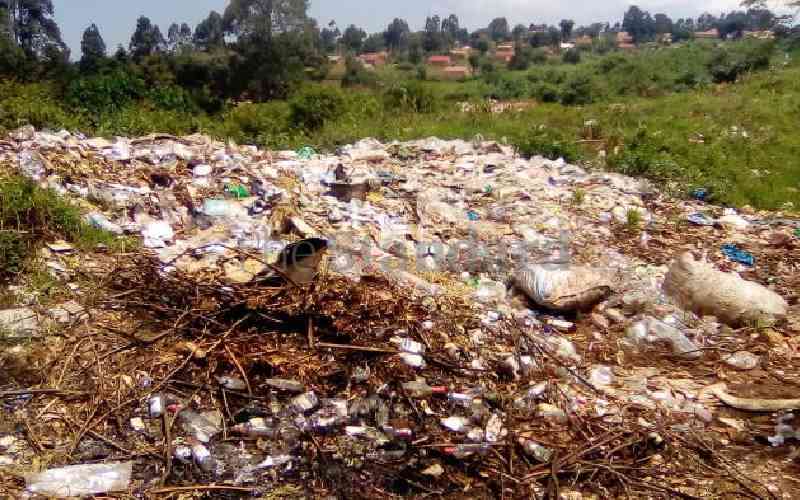A dispute over land between two families has panned out into a conflict that has sucked in two communities on either side of Kakamega and Nandi counties’ border.
And it appears the problem may not be resolved soon after a peace meeting was scuttled when another flare-up that left several families homeless, erupted.
Nearly a month ago, Joel Kosgey was killed. His death precipitated fighting in which one person was killed and five houses torched at the border in revenge attacks. And last Sunday, 200 people were rendered homeless when 28 houses were torched and swathes of sugarcane plantations burned after Mulunda Pirii and his brothers Mboya and Luvale, who the Nandi family alleges killed Kosgey, were released from police custody.
The three were freed from Kapsabet Police Station last Friday for lack of evidence to charge them. But this wasn’t enough to deter another revenge raid. The relationship between the two communities along the border has often been fragile and the trend has been any small excuse and they attack their neigbours. In 1980 and 1992, there were tribal clashes along the Nandi Escarpment that also serves as the administrative and electoral demarcation of the former Western and Rift Valley provinces.
Although the clashes were blamed on politics, failure by courts to settle land cases and insecurity triggered by poverty and high unemployment levels, have forced residents into taking the law into their hands. The murder of Kosgey provided the necessary ingredient to spark hostilities.
A peace public baraza planned for Wednesday failed to take take off amid suspicions following the Sunday skirmishes. “We are worried of being attacked. The good neighbourliness that existed is no more,” says a resident who vowed she couldn’t attend the meeting for fear of reprisal by rival community.
And on Thursday, a meeting between Kakamega County Governor Wycliffe Oparanya and his Nandi counterpart Cleophas Lagat aborted in unclear circumstances. The meeting to get a solution to the bloody land feuds was to be held at Oparanya’s office.
“We will hold a closed meeting with Nandi County government to asses and establish exact boundary. We will form a committee of elders to reconcile the two communities and report any threats to security in the area,” said Oparanya.
Both governors are urging their people to desist from fighting. Lagat advises that communities should not be dragged into individual matters. ”It is an individual who has committed the crime. It is not right to incite people into inter-ethnic fighting,” said Lagat.
He urged residents to be calm and leave the matter to the authority and for the law to take its course: “We want people to mingle, encourage development and children to learn from neighboring counties. Criminals should not bring enmity between the Kakamega and Nandi residents.”
County police spokesperson Timon Odingo warned the youth against violence. “Arrangements to have peace meetings are on and youth should not use such opportunities to cause havoc. Police have been deployed in the area to restore calm,” Odingo said.
Residents have blamed the government for failing to contain the situation. “When the sub-county commissioner arrived at the scene, only one house had been burnt. The other houses were burnt in his presence,” said Paul Liyayi, a victim of torching.
Liyayi said they fought back the attackers who were armed with arrows and spears – with stones and rungus, resulting to one casualty who was rushed to the hospital. “We had contained the situation ourselves using stones and rungus but when the police officers arrived, they dispersed us leaving our enemies to prey on us and our property,” he said.
Fiona Cheptoo, although a Nandi married to a Luhya, did not escape the wrath of her kin, who set her house on fire. She said tribalism is the root cause of the problems between the two communities. “I am a Nandi but cannot cross the path. I had to camp in the forest for fear of being killed,” she added.
Stay informed. Subscribe to our newsletter
 The Standard Group Plc is a
multi-media organization with investments in media platforms spanning newspaper
print operations, television, radio broadcasting, digital and online services. The
Standard Group is recognized as a leading multi-media house in Kenya with a key
influence in matters of national and international interest.
The Standard Group Plc is a
multi-media organization with investments in media platforms spanning newspaper
print operations, television, radio broadcasting, digital and online services. The
Standard Group is recognized as a leading multi-media house in Kenya with a key
influence in matters of national and international interest.
 The Standard Group Plc is a
multi-media organization with investments in media platforms spanning newspaper
print operations, television, radio broadcasting, digital and online services. The
Standard Group is recognized as a leading multi-media house in Kenya with a key
influence in matters of national and international interest.
The Standard Group Plc is a
multi-media organization with investments in media platforms spanning newspaper
print operations, television, radio broadcasting, digital and online services. The
Standard Group is recognized as a leading multi-media house in Kenya with a key
influence in matters of national and international interest.









